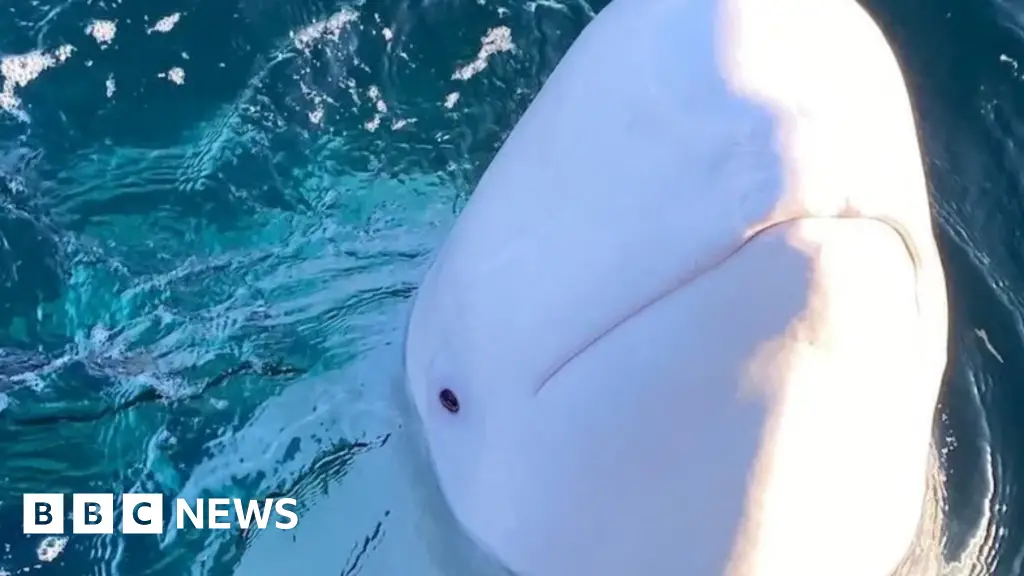
Hvaldimir’s lifeless body was discovered at the weekend by Marine Mind, an organisation that has tracked his movements for years.
Marine Mind founder Sebastian Strand told AFP news agency that the cause of death was unknown and that Hvaldimir’s body had no obvious injuries.
“We’ve managed to retrieve his remains and put him in a cooled area, in preparation for a necropsy by the veterinary institute,” he told AFP news agency.
With an estimated age of about 15, Hvaldimir was not old for a Beluga whale, whose lifespan can reach 60 years.
He first approached Norwegian boats in April 2019 near the island of Ingoya, about 415km (260 miles) from Murmansk where Russia’s Northern Fleet is based.
The sighting attracted attention because belugas are rarely seen this far south of the high Arctic.
The discovery led to an investigation by Norway’s domestic intelligence agency, which later said that the whale was likely to have been trained by the Russian army as he seemed accustomed to humans.
The whale became known locally as Hvaldimir, a pun on the Norwegian word for whale, “hval”, and President Vladimir Putin.
Russia has a history of training marine mammals such as dolphins for military purposes and the Barents Observer website has identified whale pens near naval bases in the north-west area of Murmansk.
Russia has never officially addressed the claim that Hvaldimir may have been trained by the Russian military. It has previously denied the existence of any programmes seeking to train sea mammals as spies.






